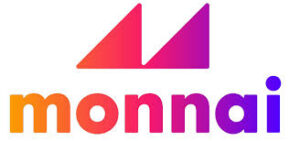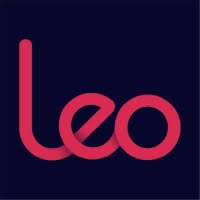Oneleet Draws Major Investors in $33 Million Financing Round

Amsterdam-based cybersecurity startup Oneleet has raised $33 million in Series A funding at a valuation estimated between $150 million and $200 million, according to people familiar with the matter, as the company bets it can consolidate a fragmented compliance market that generated over $12 billion in spending last year.
The round, led by Dawn Capital with participation from former Snowflake Inc. chief executive Frank Slootman and Dropbox Inc. co-founder Arash Ferdowsi, brings total funding to $35 million for the two-year-old company. Oneleet reported $9 million in annual recurring revenue, representing roughly 300% growth from the prior year, though the company declined to disclose customer count or retention metrics.
The fundraise comes as compliance automation platforms face growing questions about whether they deliver genuine security improvements or simply help companies pass audits. Oneleet founder Bryan Onel argues most competitors focus on “compliance theater,” a term security professionals use to describe checkbox exercises that satisfy auditors without addressing actual vulnerabilities.
Rising Competition Shapes Industry Dynamics
That pitch faces a crowded field. Vanta, which raised $150 million at a $1.6 billion valuation in 2022, has signed over 5,000 customers. Secureframe raised $114 million and claims 1,000 clients. Drata has pulled in $328 million in total funding. All three offer similar integrated platforms combining automated security monitoring with compliance workflows.
“Everyone says they do real security, not just compliance,” said John Kindervag, a security consultant who coined the term “zero trust” while at Forrester Research. “The question is whether mid-market buyers will pay premium prices for a more comprehensive approach when cheaper tools get them through the audit.”
Oneleet’s response centers on hands-on service. The platform bundles penetration testing, code scanning, cloud security monitoring and attack surface management, but includes security engineers who review findings and provide managed services. Two-thirds of Y Combinator’s recent cohort have signed on as customers, according to the company, though that represents startups still in early stages with limited security budgets.
The challenge is economic. Compliance automation platforms typically charge $20,000 to $50,000 annually for mid-market customers. Adding managed services and penetration testing could push Oneleet’s pricing above $100,000, creating sales friction in a market where buyers increasingly scrutinize security spending.
Revenue Growth Attracts Seasoned Operators
Dawn Capital partner Haakon Overli said the firm invested based on Oneleet’s retention rates and expansion revenue, though he declined to provide specific figures. “We’re seeing customers consolidate four or five point solutions into Oneleet and increase spending over time,” Overli said. “That’s the signal we look for in these markets.”
The participation of Slootman and Ferdowsi, who have collectively backed companies worth over $100 billion, adds credibility. Slootman built a reputation for aggressive scaling at ServiceNow Inc. and Snowflake, where revenue growth consistently exceeded 100% annually during his tenure.
Industry analysts note that compliance platforms face natural growth limits. Most customers need one SOC 2 audit annually, creating a ceiling on recurring revenue unless providers like Oneleet expand into adjacent security functions or move upmarket to enterprise accounts with more complex requirements.
“The unit economics work if you can automate delivery and minimize human touch,” said Sam Rehman, an analyst at Gartner Inc. who covers security operations. “Once you add managed services and expert review, margins compress and the model looks more like consulting than software.”
Oneleet plans to use the capital to hire 30 security engineers and expand sales teams in the U.S. and Europe. The company will also invest in AI-powered threat modeling and policy generation, though executives provided few specifics on technical implementation or differentiation from similar AI features competitors have announced.
Regulatory Pressure Creates Tailwinds
The broader market is expanding. New regulations including the European Union’s Digital Operational Resilience Act and updated SEC cybersecurity disclosure rules have increased demand for audit-ready security controls. Compliance spending grew 18% in 2024, according to market research firm MarketsandMarkets, driven by requirements that software vendors demonstrate security posture before closing enterprise deals.
Organizations now routinely require SOC 2 Type II reports, ISO 27001 certifications or custom security questionnaires during procurement processes. That dynamic benefits any vendor that can streamline audit preparation, though it also intensifies competition as established players add compliance features to existing security platforms.
Some security leaders question whether integrated platforms deliver better outcomes than specialized tools. “We tried the all-in-one approach and ended up with mediocre capabilities across the board,” said a chief information security officer at a fintech startup who asked not to be identified discussing vendor relationships. “Now we use best-of-breed tools and accept the integration overhead.”
Oneleet customers interviewed by Bloomberg described faster audit timelines and reduced vendor management complexity. A CISO at a healthcare software company said the platform cut SOC 2 preparation time from six months to ten weeks, though she noted the company still maintains separate tools for endpoint protection and identity management.
Execution Challenges Ahead
The company faces several hurdles. Building a security services organization requires recruiting scarce talent in a market where experienced penetration testers and cloud security engineers command salaries exceeding $200,000. Scaling managed services while maintaining quality typically requires significant operational investment before revenue growth justifies the cost.
Customer concentration also poses risks. Relying heavily on early-stage startups creates exposure to churn if those companies fail or outgrow the platform. Moving upmarket to enterprise accounts requires building features like single sign-on, advanced reporting and compliance frameworks beyond SOC 2, all of which demand engineering resources.
The AI capabilities Oneleet plans to develop face technical obstacles. Applying large language models to security assessments and policy generation requires training on proprietary data while avoiding errors that could create liability if automated recommendations prove inadequate during a breach investigation.
Dawn Capital’s Overli acknowledged the execution challenges but said Oneleet’s current metrics justify the valuation. “They’re growing faster than Vanta or Drata did at this stage,” he said. “If they can maintain that trajectory while building out the service layer, they’ll have a differentiated position.”
Market Consolidation or Crowded Landscape?
The compliance automation market appears headed toward consolidation. Larger security platforms including Wiz and Snyk have acquired or built compliance features, creating pressure on standalone vendors to demonstrate unique value or risk becoming acquisition targets themselves.
For Oneleet, the next 18 months will determine whether the integrated security-first model resonates beyond YC-backed startups. Oneleet needs to prove it can sign customers outside its initial network, retain them as they scale, and expand revenue per account to justify the premium positioning.
The $33 million provides roughly two years of runway at current burn rates, according to venture capital investors familiar with typical Series A spending patterns. That timeline means Oneleet will need to show sustained triple-digit growth and improving unit economics to raise a Series B at a meaningful step-up valuation.
Whether the company represents a genuine advance in security operations or another variant on existing compliance automation will become clear as larger enterprise customers evaluate the platform against established alternatives. The difference between security theater and operational security may ultimately come down to price, retention data and breach records rather than founder vision.





